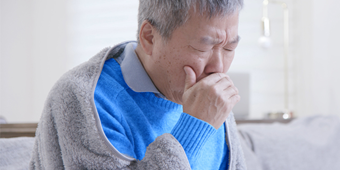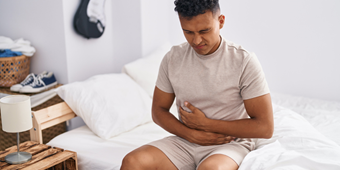How To Return To Your Favorite Places Amid COVID-19

Find Your Perfect Match
Answer a few questions and we'll provide you with a list of primary care providers that best fit your needs.
How safe are you when you venture away from home, now that more and more businesses and other places you used to frequent are reopening their doors – and as new cases of COVID-19 continue to be diagnosed?
“Home is safest,”
Roberto Colón, MD, Premier Health Vice President of Quality and Safety, advised Premier Health Now. “Outdoors is next. And indoor, likely still
safe, as long as we’re following recommendations.” (That is, maintaining at least six feet of social distance, frequently washing your hands for 20 seconds, refraining from touching your face, and wearing cloth face coverings or masks
in public.)
“If you’re worried about going out, if you’re worried about going to a restaurant, you need to listen to these concerns and potentially not go out at this point,” he suggests. “That’s particularly
important for those people who have health issues and immune systems that are suppressed.”
Be Aware Of Your Environment
And when you do step into a newly reopened location, he adds, “be cognizant of your environment. If you go into a restaurant and you see that everyone is packed shoulder to shoulder and nobody is wearing facial coverings, that there are sick people
around, you need to be honest with yourself if that is an environment where you feel comfortable.”
When going out to eat, he says, “I prefer the outdoor dining options for a variety of reasons. The weather is really nice right
now. And being outdoors reduces the chance for that person-to-person transmission, because of the air currents and the weather outdoors, which may potentially reduce the longevity of the virus.”
Being outdoors also makes social distancing
easier.
But many restaurants, he adds, “are taking very active measures” to make indoor dining safer for employees and customers. “They’re putting in some very explicit instructions about how they want their customers
and staff to function.” That includes requiring reservations to control the number of diners at a given time.
Similarly, hair salons and barber shops are doing their part to ensure proper spacing, along with enhanced cleaning, and
requiring face coverings for staff, and in many cases, customers, “to make sure the environment is as safe as they can make it,” Dr. Colón says.
How To Work Out Your Workout
Fitness centers cause him some concern. “Though they have a lot of space, the equipment is close together and there’s a lot of reuse of equipment from one person to the other, so it has more potential concerns.”
To reduce
risk, some gyms require appointments. “Others are assigning particular equipment when you come in, and that really limits the number of people that are using the machines, the weights, the bands, the mats at any particular time.”
You can help make your gym safer, too. “Follow the recommendations of the facility for cleaning the equipment, and you should make sure that the facilities are doing that constantly. There should be somebody walking around either wiping down
the equipment frequently, or making cleaning materials and disinfecting spray very accessible for those pieces of equipment that are being shared.”
Dr. Colón recommends bypassing the locker room to avoid a potentially higher
risk source of virus transmission. He suggests arriving at the gym in your workout clothes and showering at home.
“That reduces another contact point. We’re trying to minimize the risk.”
Shall We Gather Together
Churches and other houses of worship typically have many contact points – hugs, handshakes, and shared rituals – as worshippers gather in close proximity. Many have been staying home lately, watching live-streamed worship services.
“It has affected people not being able to share in any of those gatherings, so I know there’s a lot of push for coming back,” Dr. Colón says.
“Church will look different. But the goal is to return to life
as normal as we can make it, and still minimize the risk as much as possible.”
For houses of worship this means limiting attendance to accommodate social distancing, modifying rituals such as communion, and more intense cleaning.
Singing, another common part of worship, also poses a challenge. “When we sing, or when we speak loudly, our respiratory secretions have a tendency to travel a little bit farther,” Dr. Colón explains.
By wearing a
cloth face covering, though, you can shorten the flight path of these potentially virus-carrying secretions.
Face Masks: A Key To Safe Reopening
“There’s growing evidence that wearing a mask is beneficial in reducing the spread of the disease and the
speed it can spread within an area,” Dr. Colón says.
“We really need to be thinking about how do we, as a group of citizens together, combat a disease, and this (mask wearing) is the best way to do it.”
Dr.
Colón said he wears a mask when around others in public, “because I’m trying to be responsible, I’m trying to make everybody else also feel comfortable knowing that what I’m doing isn’t just about protecting myself but
also my family and other individuals who are there. That’s how we need to think about it.”
He adds that many businesses will be “enforcing their right to admit or not admit individuals without a mask, to protect themselves
and to protect others who are there, and to make customers feel safe when they go in.”
As a closing piece of advice, Dr. Colón offers: “For any of these environments, if you are ill, please do not go. It’s very
important that you think of the potential risk to others of you venturing out when you’re ill.”
Find Your Perfect Match
Answer a few questions and we'll provide you with a list of primary care providers that best fit your needs.
Source: Roberto Colón, MD, Premier Health Vice President of Quality and Safety





